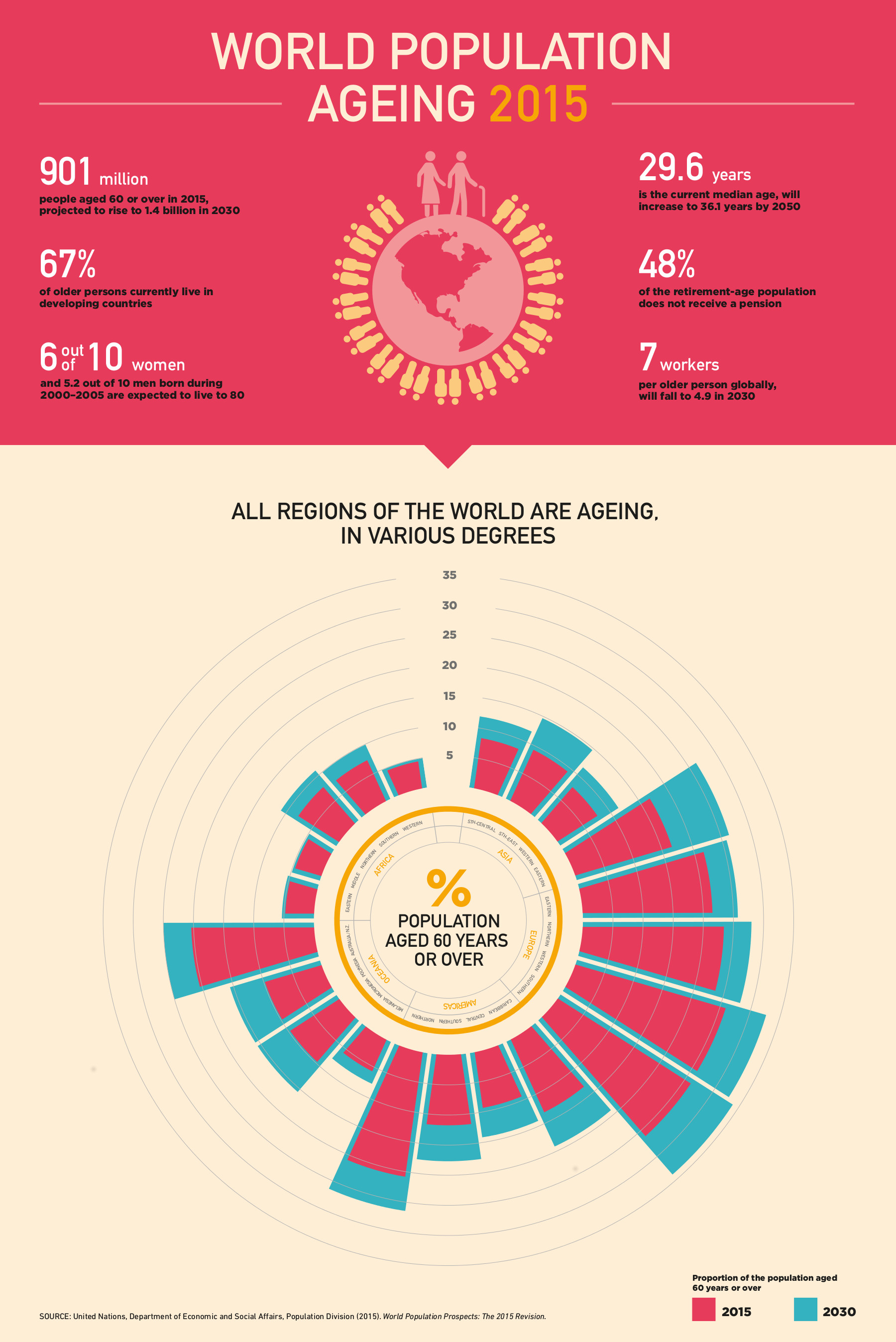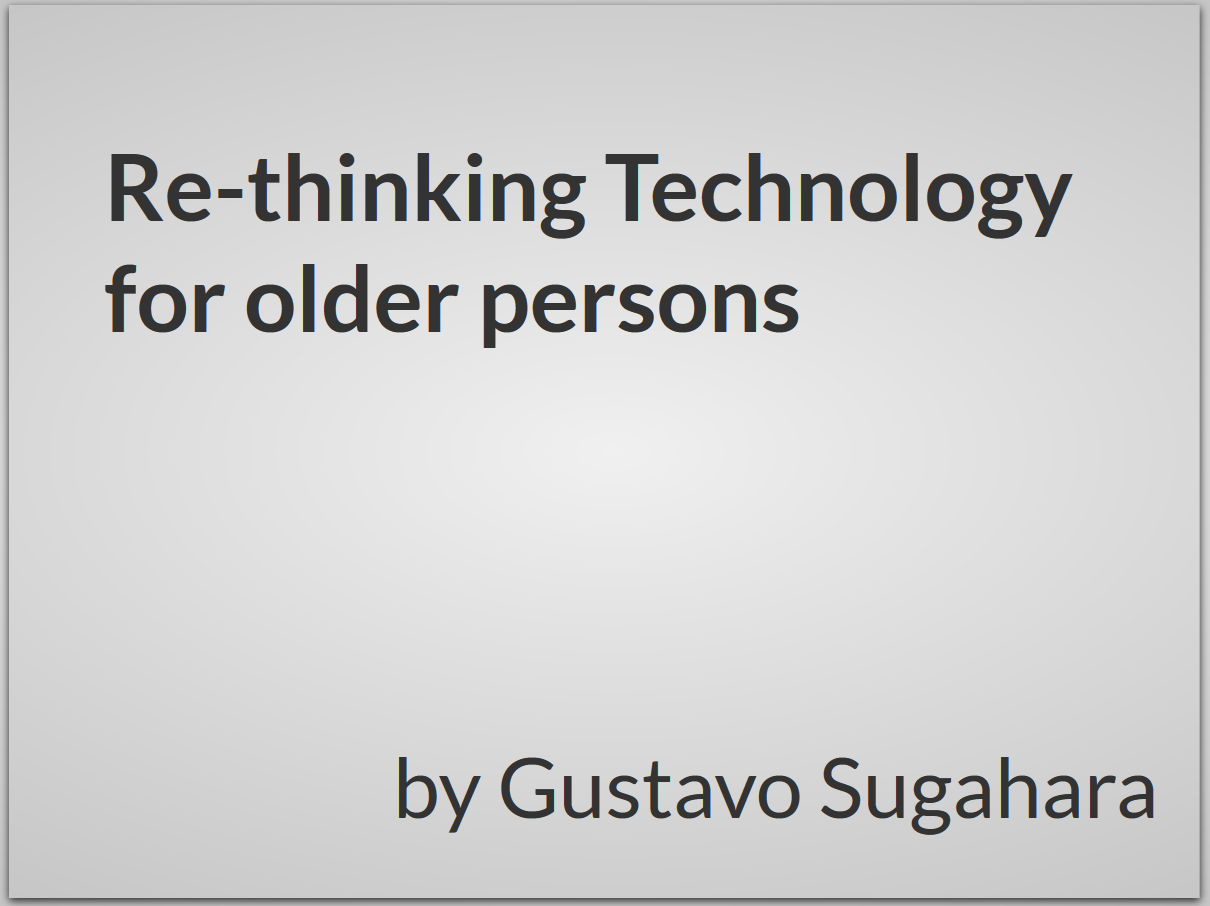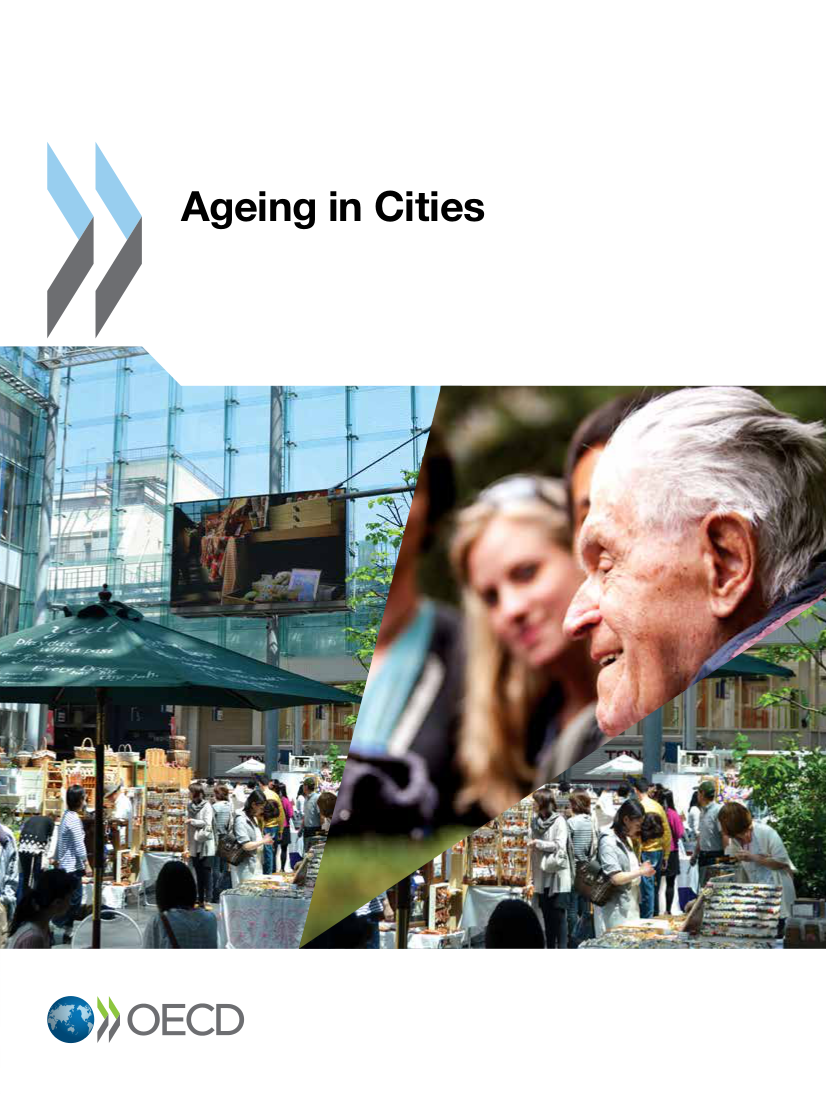
The United Nations Department of Economic and Social Affairs recently published an interesting infochart about the World Population Ageing, reflecting the latest estimates and projections from the 2015 Revision of World Population Prospects.
“Virtually every country in the world will experience growth in the number and share of older persons in the population over the next 15 years || Between 2015 and 2030, the number of older persons — those aged 60 years or over — in the world is projected to grow by 56 per cent, from 901 million to more than 1.4 billion”
You can download the main demographic indicators for Norway here.








